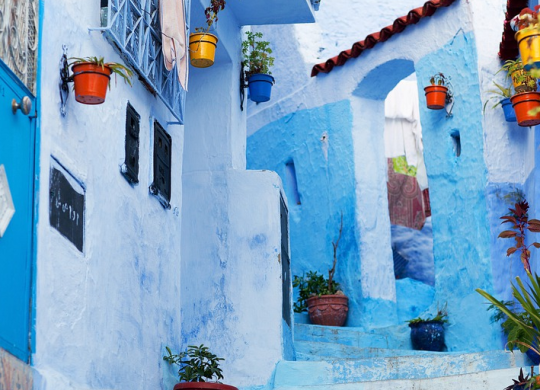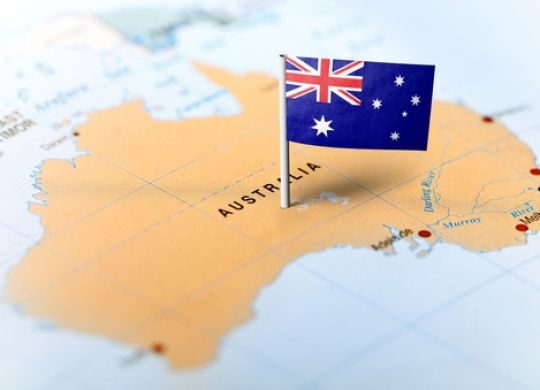How to pass through the 'gateway' of Africa and find a job in Morocco

The Kingdom of Morocco is a vivid country in North Africa where African, European and Middle Eastern traditions are all intertwined. The country is also known as the 'gateway' of the African world. If you are thinking of working abroad, Morocco would be a pretty good choice for emigration. After all, access to the Atlantic Ocean and the Mediterranean Sea contributes to the booming Moroccan business and tourism industry, as well as attracting foreign investment to the economy of this country.
Specifics of employment in Morocco
Cities such as Rabat, Agadir, Tangier, Marrakech, Fez and Casablanca are the most suitable for labour migration to Morocco. After all, a large number of multinational companies that employ foreign workers are concentrated there. This gives representatives from other countries a better chance of getting a position. But the main conditions for successful employment in Morocco are the candidate's work experience and qualifications. The level of the latter must be high for the employee to be given preference over job applicants from Morocco.
Speaking only English is not enough to find a job in Morocco. Fluency in French will be a significant advantage. After all, this language is used in the country for business communication, education and business. This tradition dates back to French rule over Moroccan territory in the 19th and 20th centuries. This will increase your chances of finding a job and understanding the state language, Arabic, at least at a basic level. Although the local dialect has some differences from literary Arabic. Read more about employment conditions in the country in our checklist.
The labour market in Morocco
The largest percentage of the Moroccan population works in agriculture. The next largest field is services and entertainment, as tourism is quite developed in Morocco. Around 20% of Moroccans work in industrial production. In general, the country's economy is market-oriented, which stimulates the constant emergence of new vacancies in various fields. Recently, remote jobs, which offer the opportunity to work from home, have been gaining in popularity.
The most accessible professions for foreign workers in Morocco would lie in the following fields:
• tourism;
• leisure and entertainment;
• management and administration;
• English and French philology;
• engineering;
• construction;
• IT;
• service.
The search for jobs in Morocco can begin with the online resources of the state structures responsible for the functioning of the labour sector. In addition to current job vacancies, general information on the conditions of employment for foreigners in Morocco and a list of Moroccan recruitment agencies are published there. Offers can be found on the websites of the Moroccan Ministry of Labour and the National Agency for the Promotion of Employment and Vocational Training.
Work visa for Morocco
To work legally in Morocco, foreigners need a work visa and a permit from the National Agency for the Promotion of Employment and Vocational Training. But a mandatory condition for obtaining a visa and permit is the presence of an already concluded employment contract with a Moroccan employer. Each contract is carefully checked for compliance with labour legislation. The work permit is issued for up to three years, with the possibility of renewal.
Also in Morocco, they are primarily concerned about the employment of their nationals. Therefore, foreigners cannot count on a vacancy applied for by a resident. And Moroccan companies can only hire foreign workers after receiving a certificate from the National Agency confirming that no Moroccans are applying for the vacancy. For advice on the legal aspects of employment in Morocco, we recommend using the services of our website.
Package of documents required to obtain a visa:
• three copies of the visa application;
• original and copy of passport;
• three colour photographs (size 3x4 cm);
• ID;
• copies of educational diplomas;
• bank statement;
• letter of recommendation and invitation letter from employer;
• a copy of the employment contract.
Recommended articles
2 min
Work
Australia has a high standard of living and good career prospects, which is why this country attracts tens of thousands of migrants from all over the world every year. Learn more about the main provisions of Australia's migration policy in 2025, as well as the procedure for obtaining an Australian work visa and vacancies in high demand in the country
03 lut. 2025
More details3 min
Popular
Top 8 countries with the best work-life balance in 2024
Moving abroad is an important step for every expat. Especially if the purpose of the change of residence is work. And for most, the most important thing when choosing a suitable location is the balance between work and personal life. We are talking about the rating of countries where you will have a good job and a lot of free time.
30 kwi. 2024
More details3 min
Work
Job in Greece for expats: the procedure for obtaining a visa, promising vacancies and conditions
Greece, as a member of the European Union, is a promising country for employment of expats. In particular, in 2024, the country needs IT specialists, as well as workers in the tourism and agriculture sectors. Find out how to get a work visa to Greece and what employment conditions in the country are relevant in 2024
07 paź. 2024
More details3 min
Work
Finland is known as a safe country that values a healthy work-life balance and offers great opportunities for foreign workers. Find out what it takes to get a job here in 2025 and what legislative changes are important for expats to know before applying for a job.
21 gru. 2024
More detailsAll materials and articles are owned by VisitWorld.Today and are protected by international intellectual property regulations. When using materials, approval from VisitWorld.Today is required.